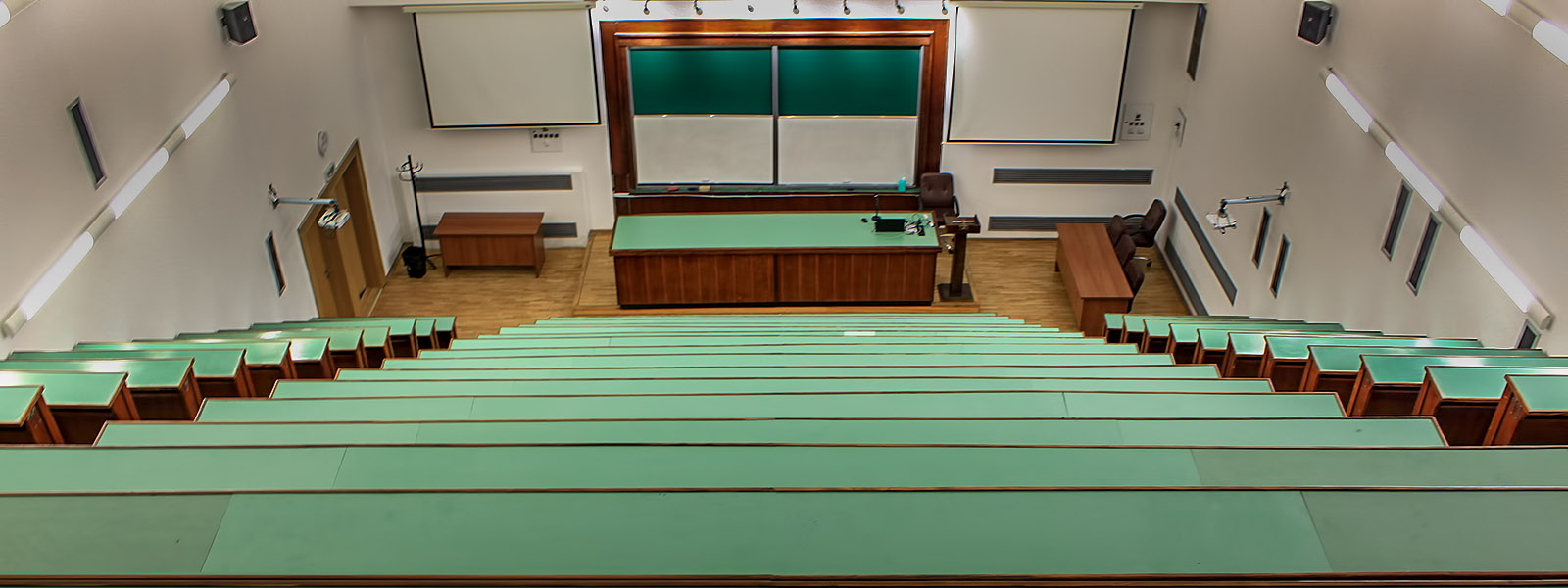Level:
Integrated academic studiesLength of studies:
5 years (10 semesters)Total ECTS credits earned:
300Acquired title:
Doctor of DentistryLanguage of instruction:
English
AIMS
- acquisition and application of a knowledge base for the benefit of the patient
- promotion of Health, gaining knowledge about diseases and their prevention in the context of the role of dentists in maintaining oral health of every individual in the community
- sufficient knowledge of basic clinical skills, both in diagnosis and treatment of dental diseases
- knowledge and demonstration of professional attitudes to achieve high standards of dental practice
- through dental curriculum, students learn to recognize and accept the responsibility to always act in the best interest of patients
- possession of the knowledge and understanding of:
- ethical and legal issues relevant to dental practice,
- organization, management and provision of dental care including quality of service, economic and social issues,
- principles of clinical treatment, including management of high-risk groups of patients
- adoption of the following attitudes essential for the dental practice:
- awareness of the ethical and moral responsibility to care for each patient,
- awareness that a doctor should always seek the highest possible quality of care for patients,
- awareness of personal and professional limitations and willingness to seek help whenever it is needed
- awareness of the importance of their own health and its impact on the ability to perform high-quality dental care.
Through the program of study, students should acquire the ability to clearly present the acquired knowledge, use efficiently time and resources, work in teams, and to successfully cope with the current dental problems. The acquired knowledge and skills, together with professional attitudes, will allow dentists greater independence and self confidence in their future practice.
COMPETENCIES
In defining learning outcomes, the study program in Dentistry at the Medical Faculty, University of Novi Sad, followed the criteria for acquiring knowledge in the biological, biomedical and dental scientific fields, as well as the practical skills and professional attitudes necessary for independent work as a dentist. Learning outcomes provided by the structure of the curriculum of the Integrated Studies in Dentistry, enable the acquisition of knowledge, skill and attitude / behavior in the following categories of competence (outcomes):
1. integration of basic knowledge of medicine in dentistry
2. application of clinical knowledge and skills in the management of dental patients
3. professional standards and conduct
4. continual education and personal development
1. integration of basic knowledge of medicine in dentistry
2. application of clinical knowledge and skills in the management of dental patients
3. professional standards and conduct
4. continual education and personal development
ADMISSION OF STUDENTS
- completed four-year secondary education
- passed the test in Chemistry and Biology
CURRICULUM
The curriculum of study programs in dentistry lasts 5 years (10 semesters) and is focused on the clinical treatment of patients. It includes information on compulsory and elective courses, as well as their structure and description. The program includes 53 courses, which include 4 electoral groups. The curriculum of the study program in dentistry contains a total of 4530 hours, wherein the theoretical instruction is included with 1915 hours, practical classes (practice) with 2430 hours, followed by 150 hours of research work during the student’s preparation for the final examination. The description of the course includes: course name, the name of the responsible teacher, year and semester of study, course content and methods of teaching units of all types, references, methods of assessment, examination protocol with the number of points for each exam obligation and the final exam.
After completion of the tasks of the study program and taking all the exams, the student conducts scientific research for the final paper, which, with 20 ECTS credits, is included in the total number of points that define the completion of the studies. Involvement of students in the study program of Integrated Academic Studies in Dentistry through the processes of active training and learning, including the areas outside the same, with the aim of mastering the content of the given program, test preparation, examination and preparation of the final work, is defined with 300 ECTS credits (60 ECTS credits in one year).
During the first year of studies, the curriculum of the study program allows students to adopt a basic knowledge of basic biomedical and preclinical sciences, general-education sciences, a basic knowledge of patient treatment, and basic dental knowledge.
During the second year of study, besides the general - education courses, students adopt the basic knowledge of Medical Sciences as well as the knowledge and skills necessary to master the curricula of dental clinical courses.
The third year of study includes courses in the field of basic medical and dental sciences and clinical medical and dental sciences.
During the fourth and fifth year of study, students gain knowledge and skills in the field of clinical dental disciplines and general medical education.
The study program also includes elective courses that give students the opportunity to acquire knowledge and skills according to personal preferences and inclinations in various dental and medical disciplines.
The teaching process of all courses lasts one or two semesters in accordance with the plan of teaching. Methods of teaching are:
Active teaching includes interactive communication with the review and disclosure of personal attitude about the topics of teaching units acquired on the basis of theoretical or empirical arguments. Interactive communication provides students with opportunities for successful learning of material covered by the program, favoring the forming of their own opinions together with the adoption of defined scientific and technical doctrines.
Teaching in small groups involves 80 students in a group of theoretical and 10, or 5 students in a group for practical instruction in preclinical or clinical courses.
Lab work in preclinical and clinical practice is performed by students independently or through demonstration of teachers and their assistents.
For each clinical skill the level of student’s competence is defined as follows:
Conquering the curriculum of Integrated Academic Studies in Dentistry at the Faculty of Medicine, University of Novi Sad, students adopt the knowledge and skills necessary for independent and responsible practice of dental profession.
After completion of the tasks of the study program and taking all the exams, the student conducts scientific research for the final paper, which, with 20 ECTS credits, is included in the total number of points that define the completion of the studies. Involvement of students in the study program of Integrated Academic Studies in Dentistry through the processes of active training and learning, including the areas outside the same, with the aim of mastering the content of the given program, test preparation, examination and preparation of the final work, is defined with 300 ECTS credits (60 ECTS credits in one year).
During the first year of studies, the curriculum of the study program allows students to adopt a basic knowledge of basic biomedical and preclinical sciences, general-education sciences, a basic knowledge of patient treatment, and basic dental knowledge.
During the second year of study, besides the general - education courses, students adopt the basic knowledge of Medical Sciences as well as the knowledge and skills necessary to master the curricula of dental clinical courses.
The third year of study includes courses in the field of basic medical and dental sciences and clinical medical and dental sciences.
During the fourth and fifth year of study, students gain knowledge and skills in the field of clinical dental disciplines and general medical education.
The study program also includes elective courses that give students the opportunity to acquire knowledge and skills according to personal preferences and inclinations in various dental and medical disciplines.
The teaching process of all courses lasts one or two semesters in accordance with the plan of teaching. Methods of teaching are:
- Interactive communication
- work in small groups
- independent performance of laboratory, preclinical and clinical skills
- demonstration of skills
- theoretical lectures, preclinical and clinical practice with a video presentation
Active teaching includes interactive communication with the review and disclosure of personal attitude about the topics of teaching units acquired on the basis of theoretical or empirical arguments. Interactive communication provides students with opportunities for successful learning of material covered by the program, favoring the forming of their own opinions together with the adoption of defined scientific and technical doctrines.
Teaching in small groups involves 80 students in a group of theoretical and 10, or 5 students in a group for practical instruction in preclinical or clinical courses.
Lab work in preclinical and clinical practice is performed by students independently or through demonstration of teachers and their assistents.
For each clinical skill the level of student’s competence is defined as follows:
- students have only theoretical knowledge of the skill
- students observe the procedure without active, i.e. independent participation
- students independently perform the procedure, but not routinely
- students independently and routinely perform procedure
Conquering the curriculum of Integrated Academic Studies in Dentistry at the Faculty of Medicine, University of Novi Sad, students adopt the knowledge and skills necessary for independent and responsible practice of dental profession.




